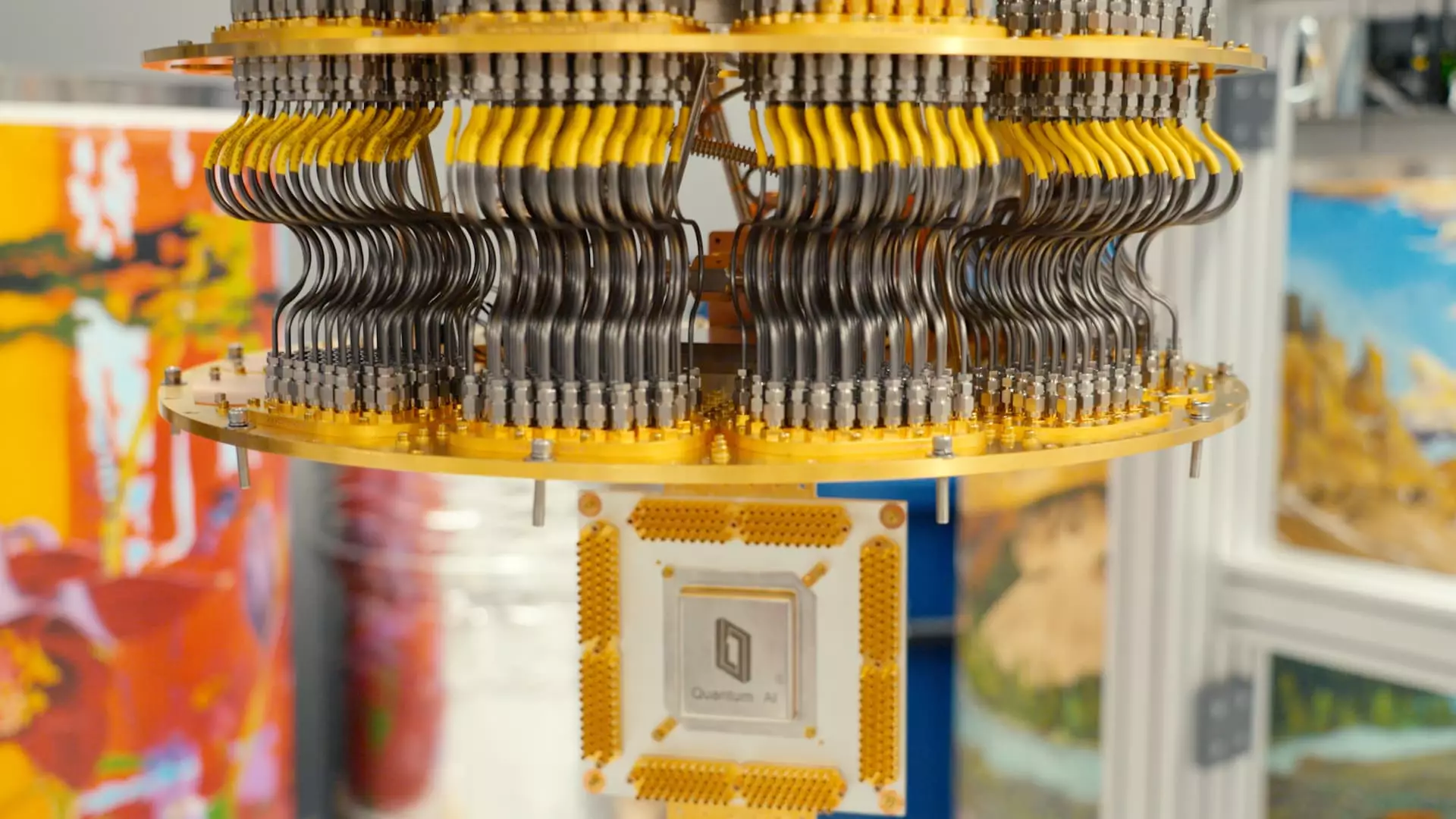Within the discreet walls of Alphabet’s Santa Barbara facilities, a monumental revolution in technology is brewing. Scientists at Google are betting heavily on the development of advanced quantum computers, a frontier that could redefine the boundaries of computation and artificial intelligence. As Julian Kelly, the director of hardware for Google Quantum AI, insightfully states, the synergy of quantum mechanics and AI could enhance these fields in unprecedented ways.
This ambition comes with a palpable urgency, especially considering Google’s perception as a latecomer in the generative AI landscape. While OpenAI’s revolutionary ChatGPT captured widespread attention in late 2022, Google is determined to reclaim its position as a leader in technological innovation. Their recent introduction of the Willow quantum computing chip reflects this ambition and represents a significant shift in computational capabilities.
Willow: A Game Changer in Quantum Computing
The Willow chip is not just another increment in technological evolution; it’s a potential game changer. Google’s claim that Willow can outperform classical computers in solving benchmark problems is monumental. This advancement is not merely incremental; it is about revolutionizing the way we approach computational tasks. With the ability to exponentially reduce errors through the addition of quantum bits, Willow establishes the groundwork for a quantum computing age that experts like John Preskill from Caltech eagerly recognize as a significant milestone.
The implications of such advancements extend far beyond theoretical pursuits. Google has an opportunity to pivot from research-focused initiatives to a commercial powerhouse, especially at a time when conventional AI models are reaching constraints in data availability. The looming “data wall” presents a formidable challenge for traditional AI systems that rely heavily on vast quantities of quality data. Google’s quantum endeavors could mitigate this challenge through the generation of new data—which may be a true revolution in how AI technology evolves.
Innovating Data Generation Through Quantum Mechanics
Illustrating the transformative potential of quantum computing, Kelly references Google DeepMind’s groundbreaking AlphaFold, which has notably aided the scientific community in understanding protein structures. The recent Nobel Prize awarded for this model underscores its importance, but it also highlights a significant limitation: most AI models are not informed by the principles of quantum mechanics, which remains a niche aspect of data generation.
Imagine a scenario wherein quantum computers could unlock new realms of information—data that AI could utilize to refine its understanding of quantum phenomena. Such capabilities could enrich the training sets of AI, enabling it to tackle complex problems that classical models find insurmountable. Kelly’s optimistic forecast that groundbreaking practical applications are just five years away reflects a conviction that quantum computing will soon provide solutions that were previously deemed unreachable.
In the swirling currents of technological evolution, Google’s commitment to melding quantum computing with AI is not just an ambitious roadmap; it represents a strategic pivot that could redefine industries. The dynamic interplay between these two domains may very well foster advancements in both scientific discovery and practical applications that impact everyday lives, perhaps in ways we have yet to fully comprehend.


Leave a Reply